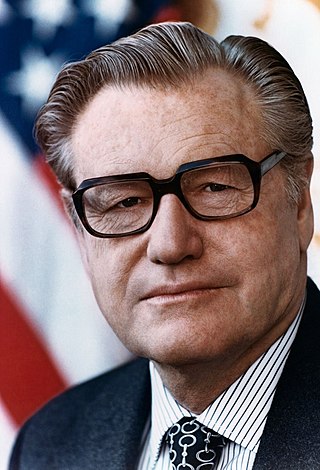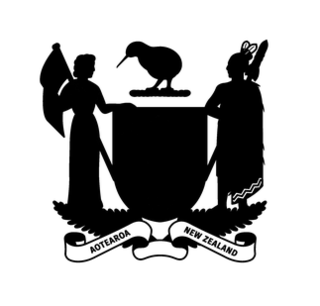Related Research Articles
Republicanism in Australia is a popular movement to change Australia's system of government from a constitutional parliamentary monarchy to a republic, replacing the monarch of Australia with a president. Republicanism was first espoused in Australia before Federation in 1901. After a period of decline after Federation, the movement again became prominent at the end of the 20th century after successive legal and socio-cultural changes loosened Australia's ties with the United Kingdom.
Rogernomics were the neoliberal economic policies promoted by Roger Douglas, the Minister of Finance (1984–1988) in the Fourth Labour Government of New Zealand of 26 July 1984 to 2 November 1990. Rogernomics featured market-led restructuring and deregulation and the control of inflation through tight monetary policy, accompanied by a floating exchange-rate and reductions in the fiscal deficit. Douglas came from a background of (left-wing) Labour Party politics. His adoption of policies more usually associated with the political right, and their implementation by the Fourth Labour Government, became the subject of lasting controversy.

The prime minister of New Zealand is the head of government of New Zealand. The incumbent prime minister, Chris Hipkins, leader of the New Zealand Labour Party, took office on 25 January 2023.

The Rockefeller Republicans were members of the Republican Party (GOP) in the 1930s–1970s who held moderate-to-liberal views on domestic issues, similar to those of Nelson Rockefeller, Governor of New York (1959–1973) and Vice President of the United States (1974–1977). Rockefeller Republicans were most common in the Northeast and industrial Midwestern states, with their larger moderate-to-liberal constituencies, while they were rare in the South and West.

This article discusses Christian politics in New Zealand.

The monarchy of New Zealand is the constitutional system of government in which a hereditary monarch is the sovereign and head of state of New Zealand. The current monarch, King Charles III, acceded to the throne following the death of his mother, Queen Elizabeth II, on 8 September 2022 in the United Kingdom. The King's elder son, William, Prince of Wales, is the heir apparent.
Classical republicanism, also known as civic republicanism or civic humanism, is a form of republicanism developed in the Renaissance inspired by the governmental forms and writings of classical antiquity, especially such classical writers as Aristotle, Polybius, and Cicero. Classical republicanism is built around concepts such as civil society, civic virtue and mixed government.

New Zealand Republic Inc. is an organisation formed in 1994 whose object is to support the creation of a New Zealand republic.

Republicanism in New Zealand is the political position that New Zealand's system of government should be changed from a constitutional monarchy to a republic.

The values and ideals of republicanism are foundational in the constitution and history of the United States. As the United States constitution prohibits granting titles of nobility, republicanism in this context does not refer to a political movement to abolish such a class, as it does in countries such as the UK, Australia, and the Netherlands. Instead, it refers to the core values that citizenry in a republic have, or ought to have.

The Realm of New Zealand consists of the entire area in which the monarch of New Zealand functions as head of state. The realm is not a federation; it is a collection of states and territories united under its monarch. New Zealand is an independent and sovereign state. It has one Antarctic territorial claim, one dependent territory (Tokelau), and two associated states. The Realm of New Zealand encompasses the three autonomous jurisdictions of New Zealand, the Cook Islands, and Niue.
Bruce Edward Jesson was a journalist, author and political figure in New Zealand.

Dame Catherine Anne Tizard was a New Zealand politician who served as mayor of Auckland City from 1983 to 1990, and the 16th governor-general of New Zealand from 1990 to 1996. She was the first woman to hold either office.

The 1856 Republican National Convention was a presidential nominating convention that met from June 17 to June 19 in Philadelphia, Pennsylvania. It was the first national nominating convention of the Republican Party, which had been founded two years before, and was held to nominate the party's candidates for president and vice president in the 1856 election. The convention selected former Senator John C. Frémont of California for president and former Senator William L. Dayton of New Jersey for vice president. The convention also appointed the members of the newly established Republican National Committee.
These are the references for further information regarding the history of the Republican Party in the U.S. since 1854.
The Republican Association of New Zealand (NZRA) was a political organisation in New Zealand with the aim of supporting the creation of a New Zealand republic.

The governor-general of New Zealand is the viceregal representative of the monarch of New Zealand, currently King Charles III. As the King is concurrently the monarch of 14 other Commonwealth realms and lives in the United Kingdom, he, on the advice of his New Zealand prime minister, appoints a governor-general to carry out his constitutional and ceremonial duties within the Realm of New Zealand.

The Coalition of Concerned Citizens was a New Zealand Christian conservative pressure group, and one of several attempts to form pro-censorship, anti-abortion, anti-gay and sex education opponents into a comprehensive social conservative political coalition. Its founders included Keith Hay, Peter Tait, Barry Reed, and Bill Subritzky.

Modern republicanism is a contemporary political ideology centered on citizenship in a state organized as a modern republic.
This article documents the political career of Abraham Lincoln from the end of his term in the United States House of Representatives in March 1849 to the beginning of his first term as President of the United States in March 1861.
References
Citations
- ↑ Jesson 1996, p. 47.
- ↑ McLean 2006, p. 281.
- ↑ Jesson 1996, p. 48.
Sources
- Jesson, Bruce (2005). Sharp, Andrew (ed.). To build a nation: collected writings 1975-1999. Auckland, New Zealand New York: Penguin Books. ISBN 9780143020523.
- McLean, Gavin (2006). The Governors: New Zealand's Governors and Governors-General. Dunedin: Otago University Press. ISBN 1-877372-25-0.
- Jesson, Bruce (1996). Trainor, Luke (ed.). Republicanism in New Zealand. Palmerston North: Dunmore Press. ISBN 978-0-86469-256-6.